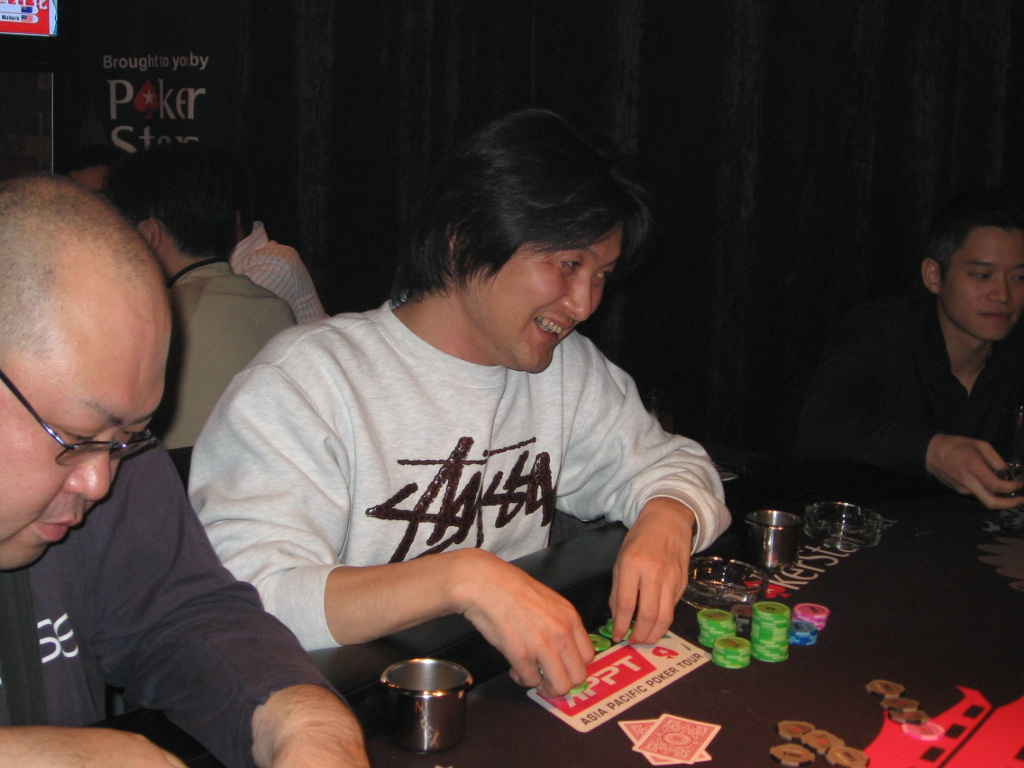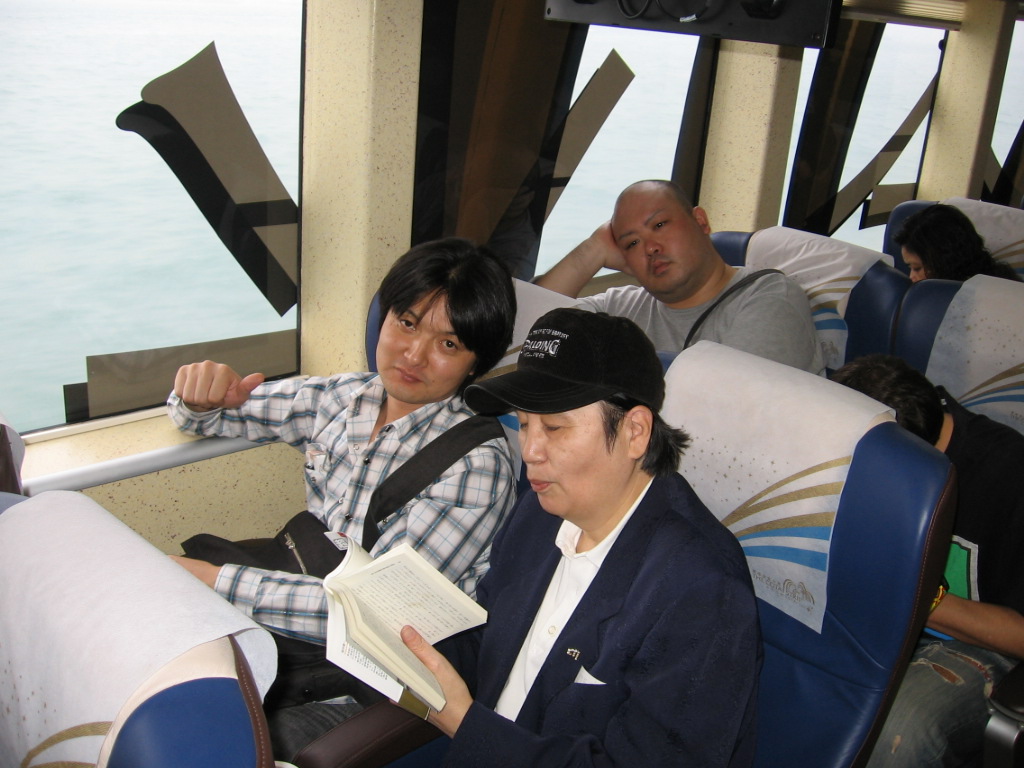Pro Interview: Naoki Setokuma (part 2)

 Last time we started our discussion with JPML A-Leaguer, Naoki Setokuma. You can check out the beginning of the interview here. This time we’ll learn about Mr. Setokuma’s experience in the Mahjong SuperCup and his thoughts on Mahjong outside of Japan.
Last time we started our discussion with JPML A-Leaguer, Naoki Setokuma. You can check out the beginning of the interview here. This time we’ll learn about Mr. Setokuma’s experience in the Mahjong SuperCup and his thoughts on Mahjong outside of Japan.
RM: What made you decide to play in the first ReachMahjong.com Cup?
NS: I saw the website after the World Series of Mahjong last year and was really impressed by the prize money. When I heard that I could play in a qualifier for an overseas event using JPML B-Rules I thought that was great. I knew I wouldn’t win in the Mahjong SuperCup, but I thought this would be a great experience to get out and overseas.
RM: So you went with no hope of winning?
NS: I think it will take about 3 times of this experience to make it to the finals. Especially after trying it out, I really felt the language barrier and was kind of engulfed in the entire atmosphere. But, I think it was a really great experience.
 RM: What did you learn from that experience.
RM: What did you learn from that experience.
NS: I really thought that in order to go there and play, you need to learn the language. I also think it is important to go to the place where the rules are being played and practice with the locals that are used to these rules. But everything is like that.
RM: The WSOM will be at the end of November this year. We’ll have another Riichi tournament, what do you think about the spreading popularity of the Riichi rules?
NS: I really think they are amazing. Garthe said this once, but in many mahjong rules all players must pay, even if another player has discarded the winning tile. I just can’t accept that. I also have a hard time accepting rules that don’t have a Missed Win (furiten) rule. I think that in order to make things popular in the world it’s important to spread them through America.
RM: What do you think of the Chinese Official Rules?
NS: When those rules first came to Japan, everyone had a problem with the lack of a Missed Win (fuirten) rule. There is no reason to read your opponents hand, you can just play your own hand and go straightforward. This feels very strange. If there is no chance for defense, and I think this is the same with poker, it’s not really about skill.

NS: In pro competitions I think that it’s very important to have strict manners. That might be the most important thing. In open tournaments and overseas I think it’s OK to relax those rules a bit. Golf competitions also have many manner nuances and I think it’s a sign of serious competition.
RM: You’re wearing a suit today. We’re used to seeing you in a suit at JPML tournaments, is this how you always dress?
NS: Well, since I was being interviewed today I figured you would take a picture, so I thought I should dress for the occasion.
RM: What did you think of Hong Kong?
NS: It reminded me a lot of Japan.
RM: How about Macau?
NS: It reminded me of how Japan used to be.
RM: What kind of food do you like?
NS: I used to like to eat Korean Barbeque a lot but lately I haven’t had the appetite for it quite so much. I really like ramen.
RM: Any other good stories to tell?
NS: When I was in Fukuoka, I was staying in a high school dormitory and my friends and I would sneak out to play mahjong. The parlor we went to was run by an old man and women and people from our dorm would fill the tables. We all climbed down the wall in the middle of the night and go to the parlor. That old man and woman would fall asleep so we would work the desk for them and bill their customers.
All of us had just learned mahjong and we were horrible, but we were great at pachinko and slot machines, so we would play those all day long and gamble our money all night at mahjong.
RM: You write a popular blog. What got you started with that?
NS: When you look at JPML’s website and Kindai Mahjong, there are lots of things that pro’s write, but it seems very controlled to me. I thought if I started a blog then I could have freedom to say what I wanted. Then I started writing and I realized that there was a lot of stuff I couldn’t write in blogs…
RM: Do you have any mentors?
NS: I’ve watched all of my elders and lost to them throughout the years and that’s how I studied. I can’t say that there was ever one player that taught me how to play. I really learned on my own.
RM: What goals do you have?
NS: Every pro wants to win the JPML Phoenix Cup. That is the most prestigious and the hardest to get. Everyone puts in years to achieve that status and honor and that means that it has great value. At one time 4 years ago I thought I had it. I was in the finals with a lead, but in the end I was overtaken.

NS: The most important thing in Mahjong is the order of discards. You have to pay attention to this. Jenn, you should play in as many tournaments as you can and get the opportunity to make a final table. That is an important experience and will make you a stronger player.
Naoki Setokuma is in the JPML A1 League. He won the first-ever ReachMahjong.com Cup and represented Japan in the Mahjong SuperCup in Macau, December, 2008. He makes appearances as a featured pro on Mahjong Fight Club and Ron2.

